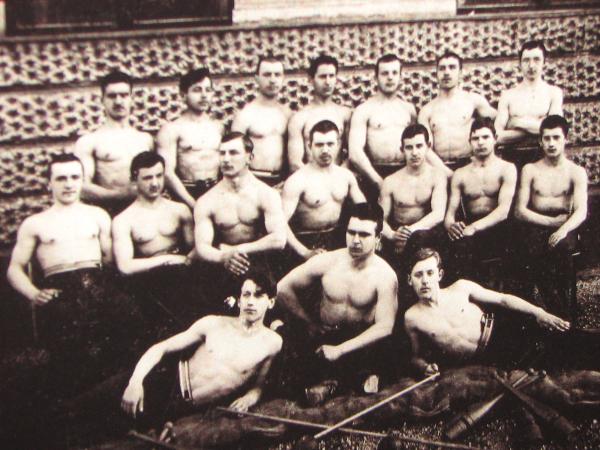
It was a common site in Slovenia between the two world wars: Large groups of young men and women taking parts in mass exercises in towns across the country. The gymnastics gatherings were organized by the Sokol movement, which had it origin in the Czech Lands, but left a profound influence on Slovenian history.
Sokol - meaning "falcon" most Slavic languages - was founded by a man named Miroslav Tyrš in the what is now the Czech Republic. He intended Sokol to serve as a response to German gymnastics movements that were then increasingly popular in ethnically mixed areas. Tyrš was determined to prove that Slavs living under German domination could have their own organization that would combine physical exercise with a sense of national belonging.
The Sokol movement was success beyond Tyrš’s dreams, and a Slovenian subsidiary was founded just a year later. It was based on the same principles: a commitment to discipline, selflessness, and responsibility, as well as an emphasis on maintaining a proudly Slavic cultural orientation. The Slovenian Sokol was quickly followed by similar organizations in Serbia and Croatia.
Just a few years after its founding, the Slovenian Sokol emerged as a major player in the national reawakening sweeping the Slovenian Lands. While emphasizing solidarity with other Slavs, Sokol also promoted Slovenian language and culture – and was among the first to call for increased Slovenian economic influence. The gatherings served as a place where patriotic Slovenians could socialize. In addition to gymnastics, they organized poetry readings and competitions, building upon the tradition of Slovenian “tabors” -- mass gatherings of patriots in the first half of the 19th century.
In the years before World War I, the Slovenian Sokol got competition in the form of the Orel ("Eagle") movements. Members of the two groups would frequently get into fights. The tensions were not just a result of youthful rivalry, but also reflected very real ideological differences: Orel positioned itself as a traditional, Catholic alternative to the more progressive, liberal Sokol.
After the Great War and the creation of Yugoslavia, Sokol became a strong advocate of South Slav unity, while Orel advocated greater Slovenian national autonomy. Sokol had the support of the King, who finally decided to abolish Orel in 1929. Because of its close alliance with the increasingly unpopular Royal dictatorship, however, Sokol began to lose political influence. In the wake World War II, it was taken over by the Communists and renamed Partizan, but its glory days were behind it.
In recent years, history works and TV documentaries have led to a renewed interest in the Slovenian Sokol – a movement that played such an important social and political role in creating and preserving a sense of Slovenian identity at a time of great turmoil in Slovenia and the region.

































































